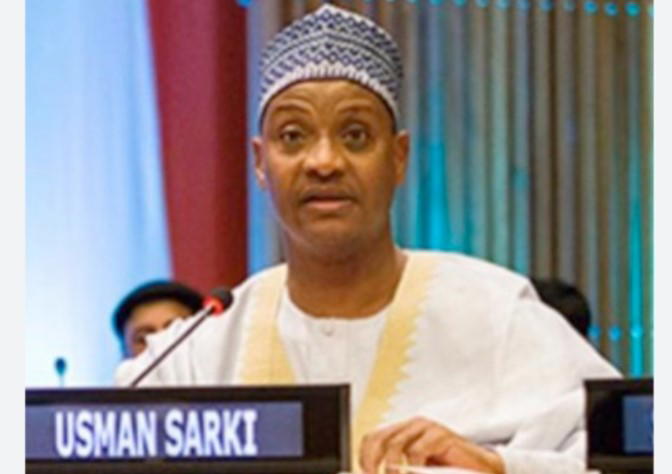Is Nigeria beyond redemption? A reflection on the state of the nation(2), by Usman Sarki

When self-interest comes into play, things get stagnant”- Japanese Proverb
Sometime ago, I had a conversation with an eminent Nigerian Professor who had just returned from the United States of America. We discussed the state of affairs in our country over breakfast touching on the issue of political party mergers, electoral alliances and coalitions for electoral victory in Nigeria since independence. It turned out to be not only interesting and informative, but prescient as well, because as fate would have it, we would soon enter a season of mergers, coalitions and political alliances along tried and tested old methods and strategies. “Plus ca change plus c’est la meme chose,” said the French so aptly! Since nothing is new under the sun, it would be instructive to recollect the various mergers and alliances that featured in Nigeria’s political landscaping and the construction of the country’s electoral edifices in the past.
The main actors in these dramas are, of course, our venerable and indefatigable politicians and the various political parties that sprout overnight like mushrooms in a dump and misty forest. For want of something charitable to say regarding the state of politics in our country, I am disposed to observe that they are simply bland, uninteresting and not so challenging intellectually. They can be taxing emotionally no doubt, but that is simply an aspect that drains any intellectual stimulus that politics under ordinary circumstances should induce in the citizens of a country. Nigerian politics lack certain redeeming features that can be attributed to the practice elsewhere in other climes. In our case, politics and political parties lack the cultural contexts or indigenous roots that anchor them in the communities from which they are supposed to spring and blossom.
They virtually grow overnight, being the creatures of expedience and not of great labour, reflection and personal sacrifice. They are created as vehicles to transport people into government offices only, without any transformative agenda that can be attributed to them. They are patchworks of midnight intrigues and elite give-and-takes that end up as morsels of hastily torn meat in the mouths of some hungry predators. Being without roots or cultural antecedents, our politics and political parties are driven not by ideology or some patiently crafted set of values and ethos, but by the momentary conception of personal gains and the curbing out of spheres of influence for personal gratification and concentration of power in the hands of the elites.
There are no spiritual dimensions to our politics which leaves them dry and emaciated in terms of vision and mission, which more or less boil down to survival of the fittest and the escape of the fastest in situations of competition and scramble for offices. Political parties as the manifestation of the political culture of the country are thus left bereft of any principles and values that would render them answerable to higher purposes like nationalism, patriotism, dedication to people and country and all those lofty sentiments and aspirations for which in other countries individuals struggle to come to power. Nigerian politics are exclusive in outlook and materialistic in their purpose being solely driven by monetary considerations and personal gains. They seem to be designed to uproot entrenched values and in their place, plant alien trends and ethos that spread across the national spectrum and leaving in their paths the wreckage of the society embroiled in self-pity and abnegation.
Our politics expose us to the vicissitudes of chance and the corrosive dogma of opposition and the overwhelming and domineering incubus of incumbency from which there is no escape or remedy. Our politics are degenerative rather than regenerative, since they have consistently failed to foster and inculcate values of service and national redemption in our citizens. At their very best, they are inward looking and of narrow provenance since they are anchored on ethnic and religious persuasions firstly, and regional affiliations in various guises of construction and posture.
The political terrain in Nigeria since independence has always been rough, and the waters have always been murky and deeply disturbed. For these reasons, the difference between legality and illegality in politics has been blurred by convenience and expedience of politicians and their accomplices in the legal profession. The defining characteristics of Nigerian politics have been weak institutions and strong personalities in charge of political parties and governments, compromised legislature and a seemingly divided and partisan press that panders to regional, ethnic and religious inclinations more often than not. The role of the civil society has been marginal and inconsequential most of the time. Political parties themselves are often the instruments at the disposal of individuals who called the shot in elections.
Selection of candidates to stand for elective offices was often done in arbitrary, clandestine and undemocratic fashion, with the imposition of “candidates” the norm rather than the exception. The conduct of “primaries” both at the local and national levels were mere shows of public endorsement of prearranged scenarios of emergence of candidates already designated by the powers that be within the political parties. Against this background, looking at political party mergers, electoral alliances, and coalitions for victory in Nigeria since independence will .l become a necessary exercise to be conducted systematically and with meticulous attention to historical facts and delineation of the principal personalities and political parties involved.
The post Is Nigeria beyond redemption? A reflection on the state of the nation(2), by Usman Sarki appeared first on Vanguard News.







